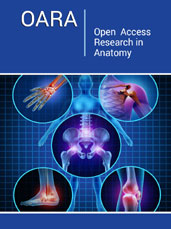- Submissions

Abstract
Perceptions in Reproductive Medicine
The effect of Individualized Pre- and Post- Embryo Transfer acupuncture on implantation and clinical pregnancy rate
-
open or closeAhmad Arabi MD1*, Brown K BS2, Grimm L MA2, Mowl S BS3, Beltsos A MD4,
Kamel L DAOM5 and Jeelani R MD4
1Department of Obstetrics and Gynecology, Wayne State University School of Medicine, Detroit, MI, USA
2Wayne State University School of Medicine, Detroit, MI, USA
3Department of Psychology, University of Michigan, Department of Psychology, Flint, MI, USA
4Vios Fertility Institute, Chicago, IL, USA
5Allied Modern Health, Chicago, IL, USA
Introduction
*Corresponding author:Ahmad Arabi, Department of Obstetrics and Gynecology, Wayne State University School of Medicine, Detroit, MI, USA
Submission: January 28, 2021 Published: February 17, 2021

Volume4 Issue3 February, 2021
Abstract
Objective: The purpose of this study is to examine the implantation and clinical pregnancy rates of patients undergoing elective, individualized pre-and post-embryo transfer acupuncture compared to receiving no acupuncture on day of transfer.
Design: In this retrospective chart review, 430 records from May 2018-September 2020 were reviewed to assess the effectiveness of the elective, individualized pre- and post-embryo transfer acupuncture (n=262) on implantation rate (positive β-hCG test) and clinical pregnancy rate (intrauterine gestational sac confirmed on ultrasound) compared to those patients who did not receive acupuncture (n=168).
Methods: Patients meeting Vios Fertility Institute’s clinical standards for having a frozen embryo transfer can elect to have individualized pre- and post-embryo transfer acupuncture performed by licensed acupuncturists on-site, 30 minutes before and immediately after embryo transfer. All single embryo transfers with known Pre-Implantation Genetic Testing (PGT), acupuncture, and Endometrial Receptivity Array (ERA) data, as well as pregnancy outcomes, were queried for this study. Transfers were conducted at a single fertility center in Chicago, IL. A binomial logistic regression was performed to determine the effects of acupuncture on the rate of implantation and clinical pregnancy. The model was used to estimate the OR of implantation and clinical pregnancy rates after adjusting for age, Body Mass Index (BMI), Anti- Mullerian Hormone (AMH), PGT, ERA, day of transfer, and embryo morphology.
Result: The percentage of embryo transfers resulting in implantation was positively associated with the use of acupuncture. 76.7% in the acupuncture group compared to 65.2% in the control group in the PGT tested subset of embryos, and 62.1% compared to 51.52% in the embryos without PGT. This difference was found to continue throughout clinical pregnancy rates (71.1% compared to 56.5% in the subset of PGT tested embryos; 55.3% compared to 46.5% in the subset without PGT). A multivariate logistic regression model was then used to isolate the impact of acupuncture from other confounding variables. When compared with the group without acupuncture, significantly increased implantation rates were observed in the acupuncture group (OR 1.64, 95% CI 1.04-2.58). Clinical pregnancy rates were also noted to be significantly increased (OR 1.64, 95% CI 1.05-2.56).
Conclusion: Overall, individualized acupuncture performed on the day of embryo transfer was significantly associated with higher implantation and clinical pregnancy rates. Follow-up research will investigate the difference in live birth rates and cost-effectiveness of additional treatments
 a Creative Commons Attribution 4.0 International License. Based on a work at www.crimsonpublishers.com.
Best viewed in
a Creative Commons Attribution 4.0 International License. Based on a work at www.crimsonpublishers.com.
Best viewed in 







.jpg)






























 Editorial Board Registrations
Editorial Board Registrations Submit your Article
Submit your Article Refer a Friend
Refer a Friend Advertise With Us
Advertise With Us
.jpg)






.jpg)














.bmp)
.jpg)
.png)
.jpg)










.jpg)






.png)

.png)



.png)






